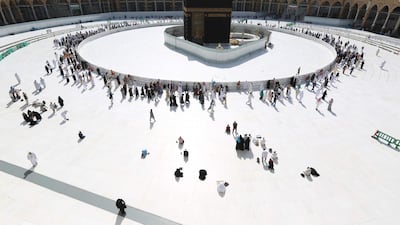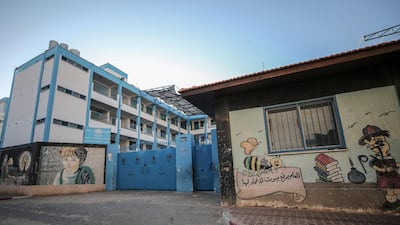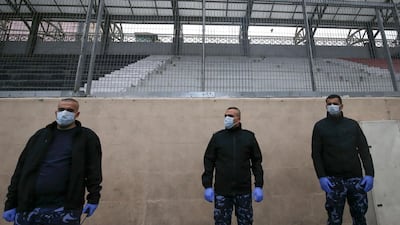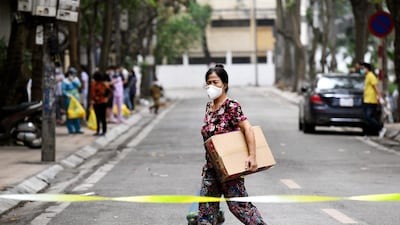Hindsight is a wonderful thing, but perhaps Opec should have kept its powder dry in December. On Friday, confronting an unexpected demand crisis, it was unable to persuade Russia to cut oil production even further. So now, the organisation has to stand its ground. Russia and American shale cannot be assured that Vienna will indefinitely bail them out.
In November 2016, Opec with its new allies Russia, Oman and others agreed to lower production by 1.9 million barrels per day (bpd). In December, after three years of restraint had modestly revived prices, the market in the first half of this year still looked weak. They agreed to make a further reduction of 1.7 million bpd, and Saudi Arabia would slash another 0.4 million bpd if the others lived up to their commitments. This came after an apparent truce in the US-China trade war revived economic fortunes, but before news broke of the virus epidemic.
In Friday’s gathering, a further reduction of 1 million bpd from Opec and 0.5 million bpd from non-Opec, extended to the end of the year, was on the table, but Russian oil minister Alexander Novak balked.
Opec has historically been more successful in counteracting sharp contractions in demand, as it did in 2009, than to supply surges, the problem it has confronted from 2014 to 2019. Widening cooperation to several non-Opec countries reduced competition from “free-riders” that overwhelmed earlier periods of Opec restraint, yet the organisation – and especially its key members – have still heavily lost market share.
Iraq and Nigeria have been the least compliant members, but least the deal stopped Iraq’s output growing much, while Nigeria gained a bit more. Most of the burden of adjustment has fallen involuntarily on Iran, Venezuela and Libya, which have collectively lost almost 3.4 million bpd to sanctions and civil strife. But after that, Saudi Arabia, with assistance from its allies the UAE and Kuwait, has voluntarily shed 1.05 million bpd.
Russia’s best compliance came in the middle of last year, when contamination in the Druzhba pipeline forced a reduction in exports. The country produced 11.29 million barrels per day in November 2016 before the Opec+ deal. In January, it was up to 11.49 million bpd. In the same time period, Saudi Arabia dropped 0.9 million bpd.
Yes, because of its floating exchange rate, and a budget that balances at $49 per barrel for its crude, Russia is more flexible in adapting to oil prices than rivals, whose currencies are pegged to the dollar. But a weaker rouble means lower Russian purchasing power, and higher living costs through imported inflation. The economy contracted in 2015 and barely grew in 2016 following the oil price fall.
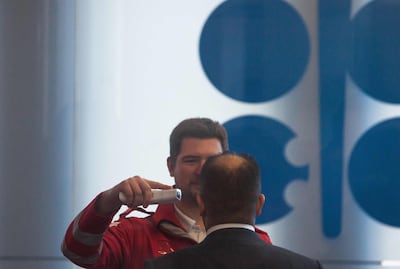
Russia probably would have added some more production over this period were it not for Opec cooperation. But its mature workhorse fields in west Siberia, and costly remote greenfields in the Arctic and east Siberia, were further restrained by US sanctions and not about to surge, especially had oil prices been stuck in the $30s.
The US is, of course, not party to production curbs. It lost half a million bpd in 2016 up to the Vienna agreement, as shale came under the pressure of low prices, but it has gained almost 6 million barrels per day of output since then.
Finally, signs of shale struggle were emerging to encourage Opec to stay the course: field maturity, slowing technical improvements, pioneers such as Chesapeake and Ultra teetering on the edge of bankruptcy, frustration from investors seeking a return on $400 billion of capital spent up to 2018. Predictions of about 0.6 million bpd of growth this year, down sharply from an average of almost 1.9 million bpd over the past three years, are likely to plummet further under the stress of lower prices. Much of shale firms’ output is not hedged, or is vulnerable to price declines below $45 per barrel (West Texas crude reached $41.28 on Friday).
Meanwhile, sales of light vehicles powered by internal combustion engines (petrol and diesel) in the main global markets, the US, EU and China, fell by almost four million, while the share of electric vehicles rose to 3.6 per cent from 2 per cent. While Opec has missed three years of solid demand growth, battery vehicles are starting to chip away at oil’s monopoly.
Leading national oil companies have sought to capture a higher share of a market that may decline in the not-so-distant future. The UAE and Iraq have raised production capacity substantially. Saudi Aramco, Adnoc and Kuwait Petroleum Corporation, in particular, have expanded their refining and petrochemical activities with multi-billion dollar investments at home, and in joint ventures in Asia. Yet simultaneously, the Opec core has been playing a low-volume, medium-price game that better suits its high-cost rivals.
The Covid-19 onslaught may seem like bad luck, but an economic downturn of some kind was ever likelier as the Opec+ deal stretched on far beyond its original expiry date.
Russia has gained from the Opec+ alliance beyond simply higher oil revenues: promises of investment from the Gulf, and political leverage, now in danger. If Moscow thinks again by the next meeting in June, it may agree to extend the December cuts, but likely there is no consensus for deeper reductions.
This may be the best way forward. A return to pumping at will would be very painful for all, but so would giving up yet another slice of demand, that may not return even when the virus is past. Holding the line at $60 to $80 per barrel has proved untenable – a spell at $40 may be achievable and enough to see off both the Russians and Texans.
Robin M. Mills is CEO of Qamar Energy, and author of The Myth of the Oil Crisis
